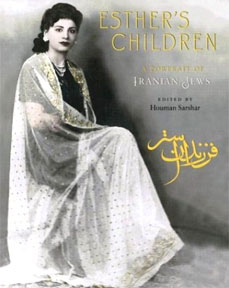
Death in translation
Nothing poetic about it. Just a difficult exit.
February 13, 2007
iranian.com
I have witnessed a person’s slow decline into death twice. The first time it was my father. At the age of ninety-eight he became bedridden and weak after an operation and after three months or so of staying in his bed, at home, he died. There was nothing poetic about this. He was not in a lot of pain but his immobility pained him greatly. An active and ambitious man who could walk for miles even into his late years he hated his predicament and used to tell me those last months, “my greatest ambition now is to get from my bed to the bathroom.”
My father’s greatest gift was his ability to talk and write beautifully. Not only was he a poet whose verses flowed within the solid and traditional confines of a ghasideh or a ghazal but he was an excellent raconteur a conversationalist of the old school. That is why it was so difficult to see him struggle to say something in those last days. For a whole week he wanted to tell me something, something that seemed important, urgent, a last wish, a last advice but he never managed.
That larger than life poet of a father who was never at a loss for words, who knew exactly how to choose them and when to utter them to the best effect had lost his ability to speak and write. Nothing I have experienced in my life was more morosely poignant. A man who had made words, sentences, verses his own, like so many tools to be used at will, lay there in full consciousness unable to mumble a word. A poet struggling to make a simple utterance.
 Recently I witnessed another slow death. My dear friend’s nanny, after a year of dialysis and a history of much illness, spent the last five weeks of her life in a French hospital dying. She was a nanny of the Old Iranian variety --- the kind that was practically born in the household and grew up as part of the family. The kind who loved you more than her own kin. Married twice, divorced, without children and devoted to the nurturing the family whom she had always served. A vestige of a feudal era where the land a prosperous family owned came with people. A time when promises were verbal and contractual bonds were passed from one generation to another and when favors were exchanged more often than money. Recently I witnessed another slow death. My dear friend’s nanny, after a year of dialysis and a history of much illness, spent the last five weeks of her life in a French hospital dying. She was a nanny of the Old Iranian variety --- the kind that was practically born in the household and grew up as part of the family. The kind who loved you more than her own kin. Married twice, divorced, without children and devoted to the nurturing the family whom she had always served. A vestige of a feudal era where the land a prosperous family owned came with people. A time when promises were verbal and contractual bonds were passed from one generation to another and when favors were exchanged more often than money.
I came to know Aziz Khanoom as she lay dying. She was a feisty woman who was hard working and proud and whose love for those she held dear was unconditional. She was not the type of innocent sweet lady who is kind to all. She had strong opinions about people and either liked them or not. She was a master cook. One of those dying breed of Iranian women who know how to turn our simple traditional dishes into works of art. She was honest and blunt. Towards the end she showed how much of a fighter she was battling for her life like a little tiger until all her energy was spent. The doctors and nurses in the hospital were all amazed at her strength and will to live. She, though illiterate, was, like my father, never at a loss for words and she too suffered his predicament of never being able to make her last words understood.
The ‘good death’ in most cultures is one that is quick. It either takes place in battle -- usually performing a heroic act -- a martyr’s death really, or one of old-age: peaceful and surrounded by loved ones. But the hospital death, the one I just witnessed, is bland, boring and crude. It is about machines ceasing to be efficacious. It takes place in sterile rooms with the noise of life-giving gadgets muffling all natural sounds of death: difficult breathing, coughing and gasping efforts to speak. It is a lonely death often taking place when no one is there in the late hours when hospitals are closed to those who care and open to those who are paid to do so. It is a death wrapped in the smell of antiseptic and stale urine, the light of hospital fluorescent lamps and the sound of nurses’ whispers in a foreign tongue. Nothing poetic about it. Just a difficult exit. Slow and, though maybe painless, not without effort. It is a lonely death in a cold place-- in another language. It is an inaudible croak in an empty room drowned in the repetitive sound of machines that have ceased to be useful. Comment
|